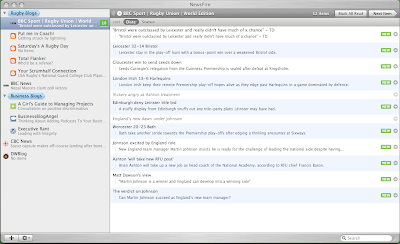 The Hawaii Superferry has been quite controversial, and quite interesting to follow in the news. It is a textbook case of how not to do something like that, but that’s not what I’m going to talk about. We finally rode the ferry over to Maui this past weekend, for a very mini-vacation.
The Hawaii Superferry has been quite controversial, and quite interesting to follow in the news. It is a textbook case of how not to do something like that, but that’s not what I’m going to talk about. We finally rode the ferry over to Maui this past weekend, for a very mini-vacation.I have to say that my expectations were low. Having ridden some ferries in Scotland and really, really enjoying them (I want to go back and take a ferry to Ireland next), I couldn’t possibly expect Hawaii to match up. The efficiency of the Scottish ferries can’t be matched, nor the friendliness of the staff (or everyone in Scotland for that matter), and then there’s the pub’s. But, I have to say I was pleasantly surprised and enjoyed the Superferry experience.
They do have some operational issues to address, and it’s definitely not for anyone who’s prone to motion sickness, but it is worth a ride. The onboard facilities are very nice. And if you’re feeling like a splurge, you can pay extra for the “first class” lounge. We looked in through the window, but didn’t feel the need to pay extra for it. Maybe on another trip, just to check it out.
There’s only one deck for passengers, but it’s big with an open floor plan. It’s well lit, with large windows all around. The “first class” lounge is at the front of the ship, then there’s the main cabin, and the rear (aft) cabin. The main and the rear cabins aren’t really separate, but the gift shop, restrooms, arcade, and deli counter in the center of the boat act to delineate them. The aisles are wide and the seats are plenty big. There is a variety of seating available. There are some rows of seats, just two across, that recline. There are some bench seats and some lounge style seats with tables. Then there are table seats, some with two seats per table and some with four seats per table. If it’s not crowded you can score a four-seater table to really stretch out, and not feel guilty. The four-seaters were popular with groups playing cards. At the rear cabin there are outside decks, though they’re very small and get pretty crowded at times.
The food was fine, and at regular prices too, which was a surprise. And you can get beer or wine. What I really liked, though, was that they had both the local papers. That’s important when you have to arrive before 6:00 am. You can’t get the paper at the airport at 6:00 am. I’ve tried.
Since I’m not an advertisement for the ferry, I have to mention they do have some operational issues that need to be addressed. The check-in procedures are… , let’s say, inefficient. We made reservations and paid online and we had a confirmation number. Check in should consist of showing our ID and giving us a receipt. It doesn’t work like that. And how many times do you really need to show your boarding pass once you’ve passed the passed the, whatever – security/gate keeper? The answer is none. Once you’re in, you’re in. How many people climb over the fence that surrounds the compound to get on the ferry? If people are doing that, skip the first check station and just have one when you get on. Hello, if people are climbing over the fence hire a security guard or something. Don’t make people show their boarding pass to get into the “secure” area, then make them show it again to someone else before you get on the boat – still in the same “secure” area. It’s not like there’s more than one boat and you might be trying to get on the wrong one.
Ho, and they should warn you about all the stairs. I’m in semi-reasonable shape and I was huffing and puffing after that climb. Everything’s fine once you’re onboard, until you get to Maui and have to get off. I guess Maui is still trying to punish them (if you don’t know the whole controversy, I can’t go into it here). In a perfect world, or in Scotland, the cars coming off the ferry would take precedence, for a short while, until all the vehicles are off. Hold the traffic on the road until all the vehicles have exited. It’s not that long, they come off pretty quick. Don’t keep the traffic lights at their normal times. The offloading traffic gets backed up and nobody moves. And that brings me to the next issue. If you don’t have a vehicle (we didn’t), you can’t walk from the ship to the terminal. You have to take a shuttle bus. And they don’t have enough shuttles for all the passengers, so they have to load up, drive to the terminal and unload, then circle back to load up again. That leaves people standing there waiting. Bad. And you’d think the shuttles would have a dedicated lane to make their circuit, but they don’t, which backs things up even more.
All in all, I enjoyed the trip, but they definitely need to fix the operational issues if they want to be successful in the long run. It’s worth giving a try though, if just for fun.

















